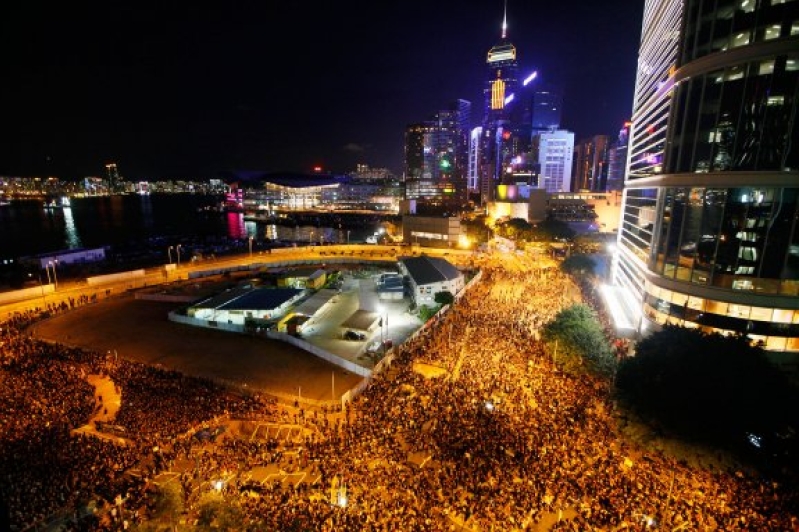
On Saturday, Hong Kong’s government has backed down on enforcing the plan for elementary and secondary school students to take Chinese patriotism classes, after tens of thousands took to the streets in protest ahead of legislative polls.
Organizers of the protest said that 120,000 rallied outside the government headquarter on Friday evening but police put the number at 36,000. The protest, which continued Saturday, began in July when the Hong Kong public demonstrated against what they say is a Beijing-imposed policy to brainwash children with Communist Party propaganda.
According to AFP, demonstrators gathered at the executive building and wore black and chanted slogans. Moreover, some protestors staged hunger strikes and students had erected a replica of the democracy statue that symbolized the student-led 1989 Tiananmen protests in mainland China.
The newly sworn-in Beijing-backed chief executive, Leung Chun-ying, had rejected the negotiation of withdrawing the policy he inherited from the previous government in July.
Yet on late Saturday night, the wealthy former property surveyor held a press conference to say that the mandatory aspect of the policy had been scrapped, according to AFP, meaning the 2016 deadline for the curriculum to be taught in all primary and secondary schools has been dropped.
“The amendment of this policy means that we are giving the authority to the schools,” Leung said. “The schools are given the authority to decide when and how they would like to introduce the moral and national education.”
After pro-Beijing elites appointed Leung earlier this year, the government had insisted the subject was important to foster a sense of national belonging and identity amid rising anti-Beijing sentiment in the semi-autonomous southern city, which is ruled under “one country, two system” policy.
Yet critics said the government-funded course material equated multi-party democracy to chaos and extolled one-party rule, and glossed over the Tiananmen crackdown and the Cultural Revolution during Mao’s regime.
The administration now appears to have caved in to public opposition.
The new 70-seat legislature elected Sunday will pave the way for full suffrage, which Beijing has promised in 2017 for Leung’s job of chief executive and by 2020 for the parliament.
Polls opened in Hong Kong at 7.30am local time and closed at 10.30pm. Results are expected on Monday.







